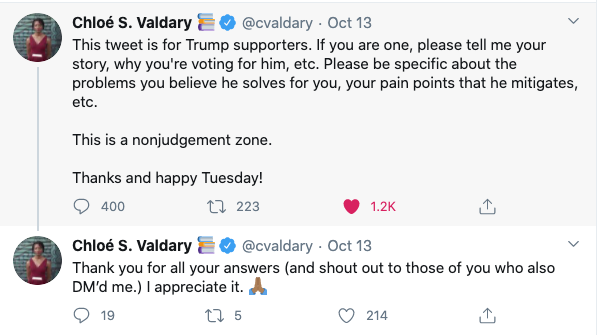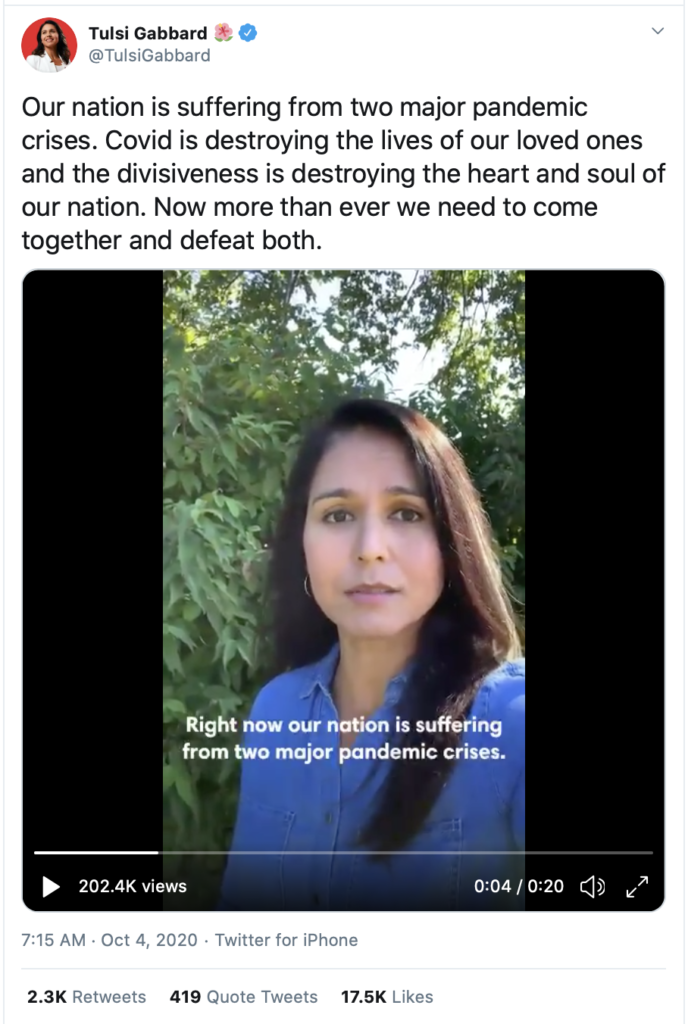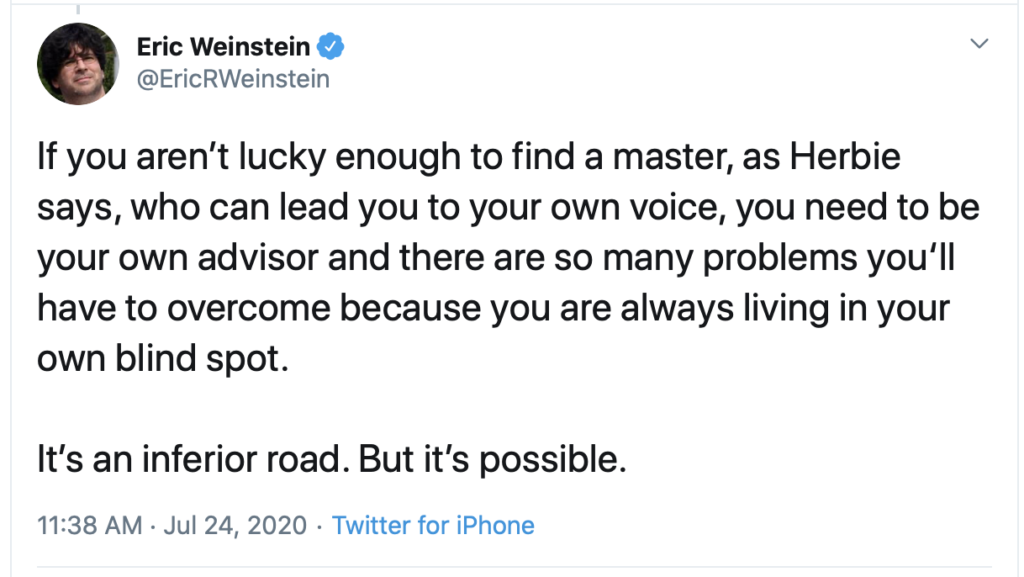The Effects of the FB Filter-Bubble re Attitudes of Trump Voters
On Facebook, I recently posed a Tweet by Chloe Valdary, a kind-hearted even-keel peace-making thinker who is most definitely not pro-Trump. She is willing to call out problems on the political left as well as the political right. I find her opinions thoughtful and instructive.
Here is how I introduced Chloe's Tweet (above) on FB:
I won't be voting for Trump, but I'm still concerned he might win re-election. I think many people feel similarly -- otherwise, why do so many people keep talking about the election and the polling? I've often wondered why so many people will vote for Trump, despite his many cataclysmic negative personal qualities. I'm glad that Chloe Valdary asked Trump voters to respond to her Twitter account by stating why they support Trump. She has received more than 300 responses that I found interesting to review. These responses don't change my mind about Trump, but I do see many Trump supporters in a different light.
In response, I saw a firestorm of anger from people on the political left. People who were angry with me that I would even consider what Trump voters think. Many of them seem to be assuming that Trump voters are perfectly aligned with Trump. They vented at Trump voters as close-minded people who are, seemingly, identical to Trump in everything they think.
I see a big tent on on the right as well as on the left. Just as there are people who are going to hold their nose and vote for Biden, there are people on the right who are going to hold their nose and vote for Trump. I think it is a worthy project to ask those Trump supporters why they are voting for a man who I find to be so personally despicable. Yes, there are many Trump supporters who I do find deplorable (and some of those people on the left too), but there are many other people (some I know personally) who I like as human beings, who I disagree with on many issues, but who are going to vote for Trump.
Instead of curiosity in reaction to my FB post, I'm seeing lots of hostility for even asking the question, for inquiring. This unwillingness to be curious about the facts troubles me on many levels. In fact, this is self-defeating behavior suggesting an "analysis" that has been contaminated by roiling emotions. I understand the emotions and I understand the stakes of this election, but it seems that many of us could do much better. Rather than being smart, they are getting drunk on anger. They need to listen to Yoda:
“Fear is the path to the dark side. Fear leads to anger. Anger leads to hate. Hate leads to suffering.”
“Once you start down the dark path, forever will it dominate your destiny. Consume you, it will.”
Anger… fear… aggression. The dark side are they. Easily they flow, quick to join you in a fight. If once you start down the dark path, forever will it dominate your destiny, consume you it will, as it did Obi-Wan’s apprentice.
They also need to consider this idea by Sun Tzu, from the Art of War":
If you know the enemy and know yourself, you need not fear the result of a hundred battles. If you know yourself but not the enemy, for every victory gained you will also suffer a defeat. If you know neither the enemy nor yourself, you will succumb in every battle.



